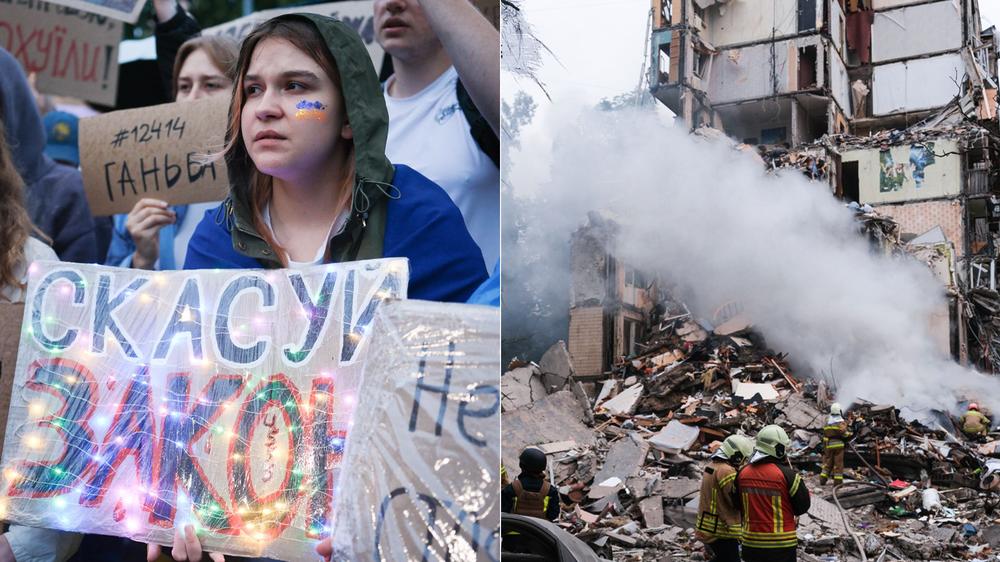Life doesn’t pause for war — not entirely. Even as missiles and drones target Ukrainian cities and front lines shift, people find ways to carry on. For those not holding a weapon, survival means more than staying alive. It also means showing up to work, gathering with friends, keeping routines stitched together with fragile hope.
In Ukraine, it also means going out to protest against the government — because even amid the chaos of war, there are moments when silence feels more dangerous than speaking out. The battle for Ukraine’s democracy is waged not only in the trenches, but in holding the government accountable for the decisions it makes during wartime.
On the night of July 30, Ukrainian photographer Serhii Korovayny captured how Ukrainians of all ages gathered in the country’s capital leading up to a vote from the Verkohovna Rada, Ukraine’s parliament, to call for the reinstatement of the independence of the country’s anti-corruption institutions.
By night’s end, as strains of the national anthem drifted through the air outside government buildings, and voices trembled with fierce devotion to the cause for which so many at the front were laying down their lives, those same protestors — who only hours before had stood with unshakable resolve — had to find shelter, tormented by the sounds of yet another massive Russian attack.
The photographs in Korovayny’s series capture not only the collective struggle of Ukrainians, but also the intimate rituals that unfold within it. He invites us into his family’s apartment, where he, his wife, and their dog practice “the quiet skill of making a cramped corridor or bathroom livable for a few hours — creating a pocket of comfort while Russian steel buzzes overhead, killing strangers in your city and threatening to kill you too.”
As morning breaks, Korovayny turns his lens to the aftermath of the Russian attack — scenes of wreckage where rescuers sift through twisted debris in search of life, and those spared by cruel fate navigate the shattered remains of what was once home, the weight of survival pressing into the silence that lingers.
And still, the day moves forward. The sun rises over broken windows and sleepless eyes. A tea kettle boils. A door creaks open. Somewhere, someone sweeps glass from a floor they still call home. There is no grand finale to this kind of endurance — only the quiet repetition of choosing to live, even when the world around you becomes increasingly fluent in the language of death.
Russia’s July 31 attack killed at least 16 people in Kyiv.
“All this has become routine,” Korovayny said. “That is what terrifies me most.”

 DJI won’t sell you an Osmo 360 in the US — but these retailers will
DJI won’t sell you an Osmo 360 in the US — but these retailers will